All programs listed below will be airing on WETA World. Check the schedule for additional information.
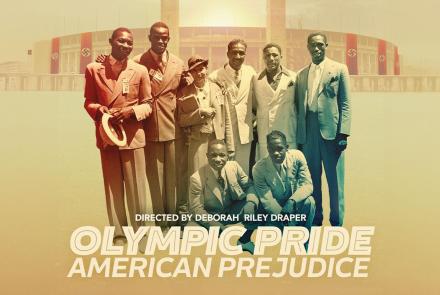
Olympic Pride, American Prejudice
Sunday, February 1 at 10pm
Defying Jim Crow and Adolf Hitler to win hearts and medals at the 1936 Olympic Games in Berlin, these African American athletes represented a country that considered them second-class citizens. During the Games, they competed in a country that rolled out the red carpet for them despite an undercurrent of Aryan superiority and anti-Semitism.
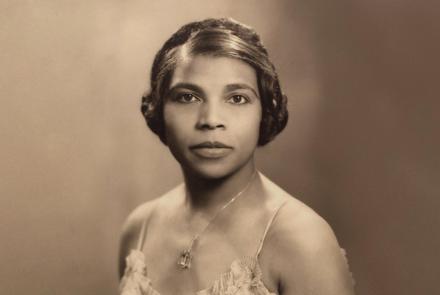
American Masters: Marian Anderson: The Whole World in Her Hands
Monday, February 2 at 3pm
Explore the life, career, art, and legacy of the African American contralto and civil rights pioneer in her own words using archival interview recordings. Marian Anderson’s singing and speaking voice are heard throughout the documentary, providing a new understanding of the woman behind the music.
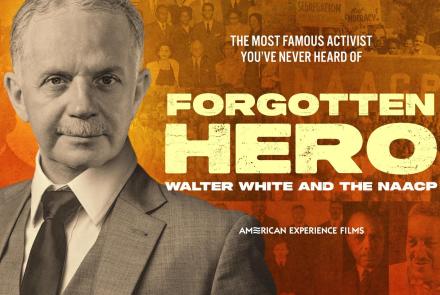
American Experience: Forgotten Hero: Walter White And The NAACP
Wednesday, February 4 at 7pm
Walter White, head of the NAACP from 1929 to 1955, has been all but forgotten despite helping lay the groundwork for the Civil Rights movement. Despite his blond hair and blue eyes, he was descended from slaves and considered himself Black and spent his entire life fighting for Black civil rights. The film traces the life and explains his disappearance from our history.
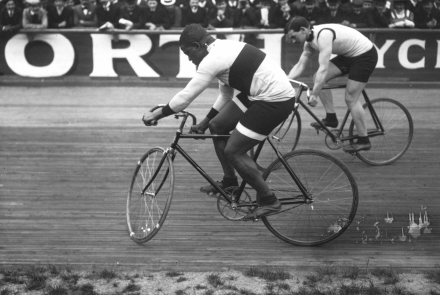
Major Taylor: Champion of the Race
Thursday, February 5 at 8pm
Retraces the life and legacy of an American civil rights pioneer who set more than 20 world records in speed cycling during the heart of Jim Crow America. Major Taylor captured the world cycling championship, the American cycling crown, and set dozens of world speed cycling records – all while having to endure withering racial pressures.
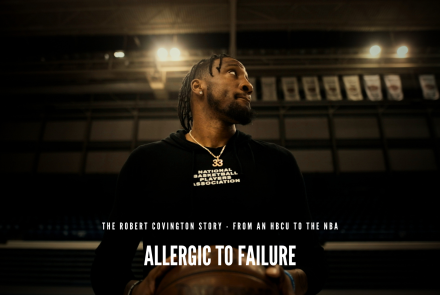
Allergic to Failure: The Robert Covington Story
Thursday, February 5 at 9pm
The story of former NBA player Robert Covington, who defied odds by transitioning from HBCU student to a decade-long career in the highest level of professional basketball.
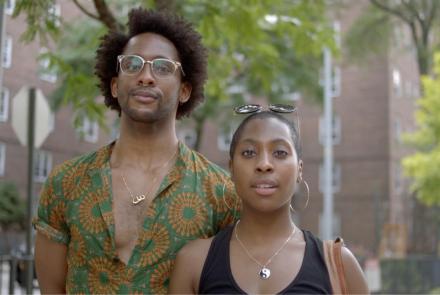
Making Black America: Through the Grapevine
Friday, February 6 at 7pm
Part 1. Building Black America. In this WETA co-production, host Henry Louis Gates, Jr. introduces the organizations, networks, and artistic impressions created by and for Black people in the fight for full citizenship.
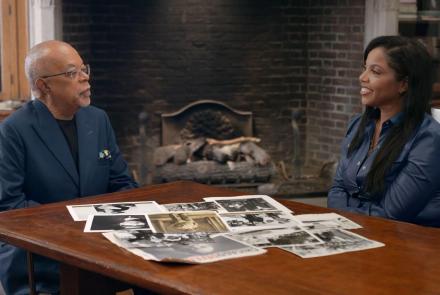
Great Migrations: A People on the Move
Friday, February 6 at 8pm
Part 1 of 4. Exodus. Hosted by scholar Henry Louis Gates, Jr., this documentary spotlights how Black migrations have shaped the United States. The premiere episode traces the first wave of the Great Migration (1910 – 1940), when more than a million Black Americans fled the Jim Crow South for the promised lands of the North.
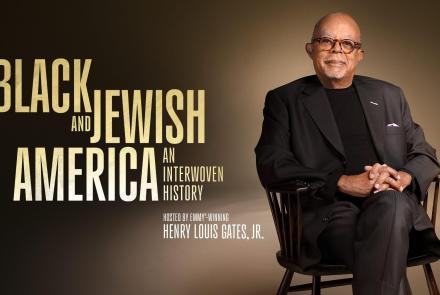
Black And Jewish America: An Interwoven History
Friday, February 6 at 9pm
A four-part series traces the rich, complex relationship between Black and Jewish Americans. The premiere episode traces the early forces that shaped the Black and Jewish connection in the U.S. Journeys of exile, faith, resilience, terror, migration, early civil rights partnerships, and tests of solidarity define the relationship by the early 20th century. Repeats Fridays 8 pm on WETA World
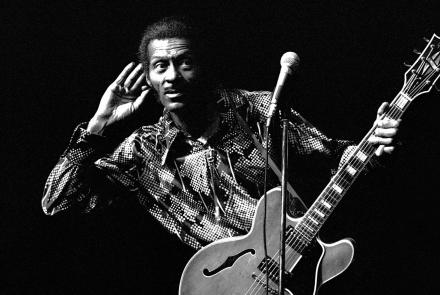
In Their Own Words: Chuck Berry
Saturday, February 7 at 7pm
Step into the world of Chuck Berry – exploring the life, the legend, the music, and the man who is regularly credited as the father of rock and roll. Meet the family who loved him, the players who were there for the rise, and the stars who bow to his inspiration and credit him for their own success.
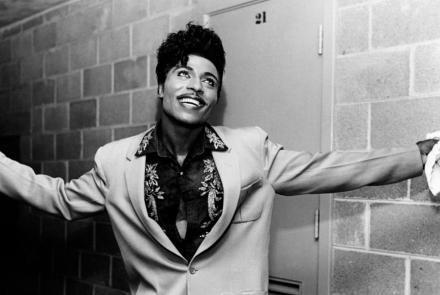
American Masters: Little Richard: The King and Queen of Rock and Roll
Saturday, February 7 at 8pm
Experience the meteoric rise and enduring legacy of Little Richard. Explore his far-reaching influence and advocacy for the rights of Black artists in the music industry.
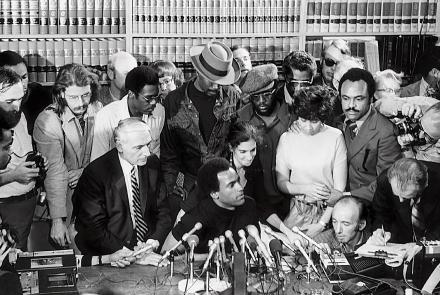
American Justice: The People vs Newton
Monday, February 9 at 7 pm
Black Panthers co-founder Huey Newton is accused of murdering a white policeman after a car stop in 1967 Oakland. A landmark trial ensues, and Newton's defense team calls out racism in the judicial system. With a death penalty looming, a shocking verdict is delivered that still reverberates today.
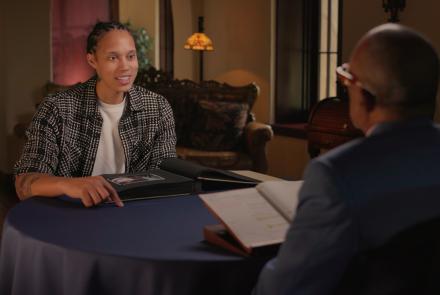
Finding Your Roots: Love And Basketball
Sunday, February 8 at 9pm
Henry Louis Gates, Jr. explores the roots of basketball superstars Brittney Griner and Chris Paul – revealing that they are not the first extraordinary people in their family trees – while telling stories of courage, talent, and grit.
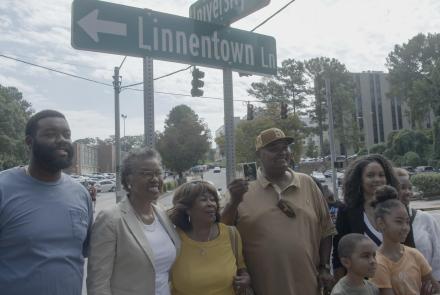
Local, USA: Linnentown
Monday, February 9 at 9pm
The last living descendants of a once-thriving Black neighborhood in Athens, GA, come together to fight to preserve the memory of Linnentown. Their family homes were razed in a 1960s urban renewal project, and now they, along with civic-minded neighbors, unite to try to reclaim their forgotten history and seek redress.
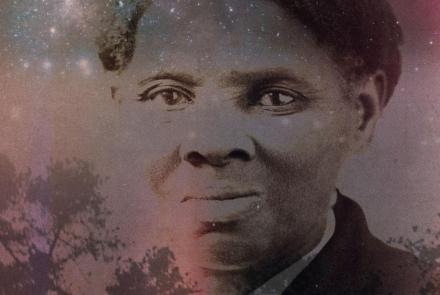
Harriet Tubman: Visions Of Freedom
Tuesday, February 10 at 3pm
Learn about the inspirational woman who repeatedly risked her own life and freedom to liberate others from slavery. Harriet Tubman was a conductor of the Underground Railroad, a Civil War scout, nurse, and spy, and one of the greatest freedom fighters in our nation’s history.
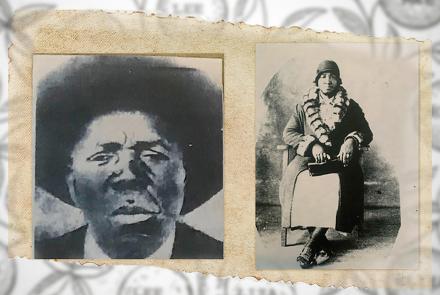
NOVA: Lee and Liza’s Family Tree
Tuesday, February 10 at 9pm
With the help of scientists and genealogists, this filmmaker and his family members search for their ancestors. Follow their journey as they hunt for new details of a history long obscured by the enduring legacy of slavery.

Slavery by Another Name
Wednesday, February 11 at 2pm
The documentary challenges the widely held belief that slavery in the U.S. ended with Abraham Lincoln’s Emancipation Proclamation and the end of the Civil War. However, even though chattel slavery was abolished with the passage of the 13th Amendment in 1865, thousands of African Americans were pulled back into forced labor with shocking force and brutality.
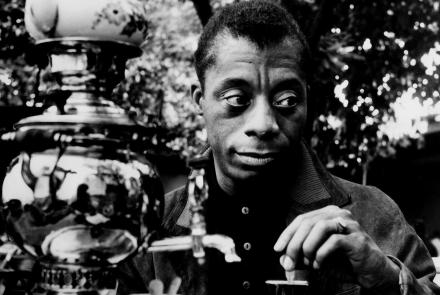
American Masters: James Baldwin: The Price of a Ticket
Wednesday, February 11 at 3:30pm
A portrait of James Baldwin, one of the greatest American authors of the 20th century. The film uses rarely seen archival footage to meld intimate and eloquent interviews with family, friends, and colleagues, including Toni Morrison, Bobby Short, and Maya Angelou.
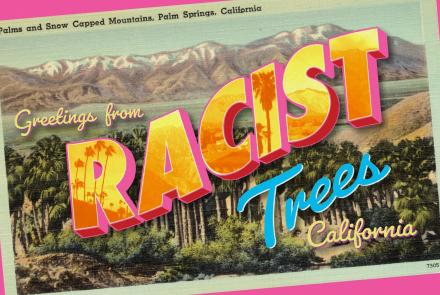
Independent Lens: Racist Trees
Wednesday, February 11 at 7pm
Racial tensions ignite in this documentary when a historically Black neighborhood in Palm Springs, California fights to remove a towering wall of tamarisk trees. The trees form a barrier, believed by some to be a symbol of racism that segregates the community.
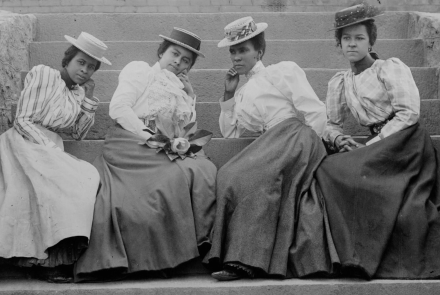
Making Black America: Through the Grapevine
Friday, February 13 at 7pm
Part 2. The Work of the Imagination. Featuring host Henry Louis Gates, Jr., this episode explores the genesis of the educational, economic, political, and cultural organizations that paved the way for Black life to flourish despite Jim Crow laws.
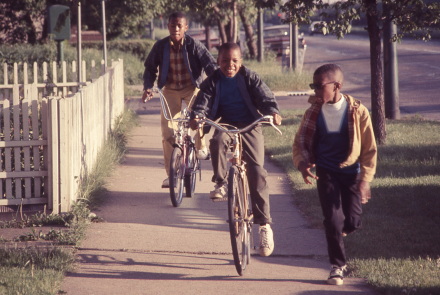
Great Migrations: A People on the Move
Friday, February 13 at 8pm
Part 2 of 4. Streets Paved with Gold. This episode explores the second wave of the Great Migration (1940-1970), highlighting how Northern and Western Black communities matured through migration and transformed the cultural and political power of Black America.
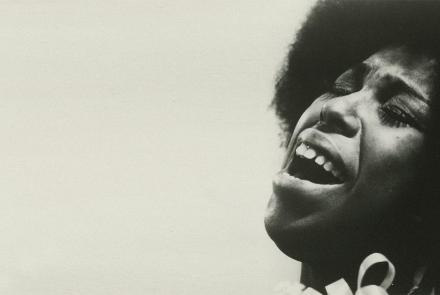
American Masters: Roberta Flack
Saturday, February 14 at 8pm
Follow the music icon from a piano lounge through her rise to stardom. From “First Time Ever I Saw Your Face” to “Killing Me Softly,” Flack’s virtuosity was inseparable from her commitment to civil rights. Detailing her story in her own words, the film features exclusive access to Flack’s archives and interviews with Rev. Jesse Jackson, Peabo Bryson, and more.
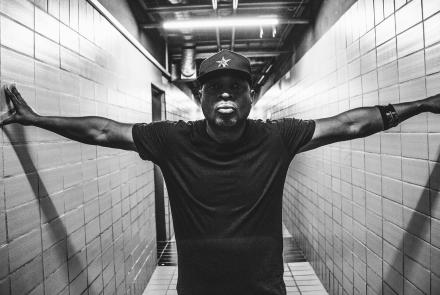
Fight the Power: How Hip Hop Changed the World
Sunday, February 15 at 10pm
Part 1. The Foundation. Public Enemy's Chuck D narrates this classic docuseries about the birth of Hip Hop as social commentary. Discover the events that led to the birth of Hip Hop and its first socially conscious hit, "The Message," by Grandmaster Flash and the Furious Five in 1982. Part 2. Under Siege. Explore the 1980s and the Reagan Era with emerging Hip Hop creators like Public Enemy, KRS-One, Ice-T, and N.W.A.
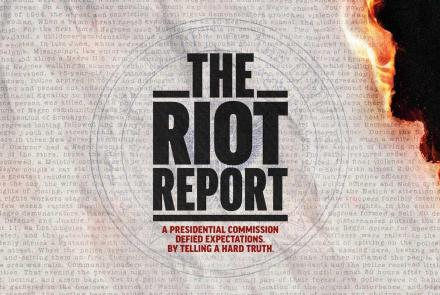
American Experience: The Riot Report
Monday, February 16 at 3pm
When Black neighborhoods across the nation erupted in violence during the summer of 1967, President Lyndon Johnson appointed the bipartisan “Kerner Commission” to investigate. The commission’s final report offered a shockingly unvarnished assessment of American race relations and examined the fraught social dynamics that simultaneously spurred the commission’s investigation and doomed its findings to political oblivion.
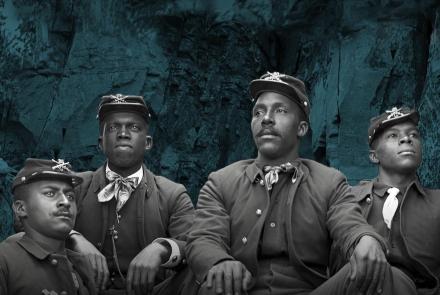
Local, USA: Buffalo Soldiers, Fighting on Two Fronts
Monday, February 16 at 8pm
This film examines the profound and often-contradictory roles played by Buffalo Soldiers in U.S. history and how they fought on two sets of front lines: military conflicts abroad and civil rights struggles at home.
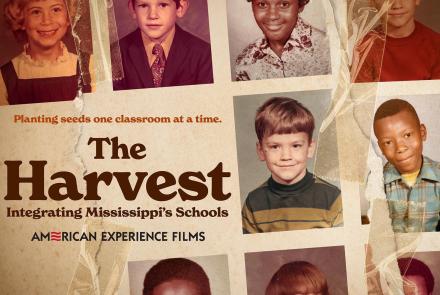
American Experience: The Harvest Integrating: Mississippi’s Schools
Tuesday, February 17 at 3pm
Pulitzer Prize-winning author Douglas A. Blackmon looks back at how school integration transformed his hometown of Leland, Mississippi. After the 1954 Supreme Court ruled that racial segregation in public schools was unconstitutional, little more than token efforts were made to desegregate Southern schools. That changed dramatically on October 29, 1969, when the Supreme Court ordered that Mississippi schools desegregate fully and immediately.
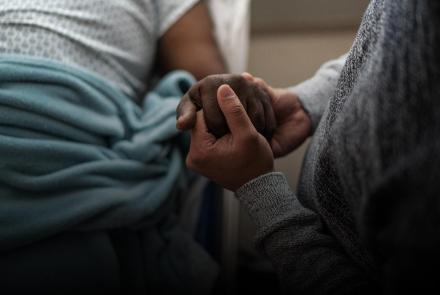
NOVA: Critical Condition: Health in Black America
Tuesday, February 17 at 8pm
Oscar-nominated filmmaker Stanley Nelson investigates the dramatic health disparities in the U.S. and the health factors behind the health crisis facing Black Americans.

Independent Lens: Bike Vessel
Wednesday, February 18 at 2pm
A heartwarming documentary tells the story of a 70-year-old defying health statistics after three open heart surgeries. A 350-mile cycling adventure with his son, the film’s producer, leads to a bonding experience and a hard look at the health inequities plaguing Black men.
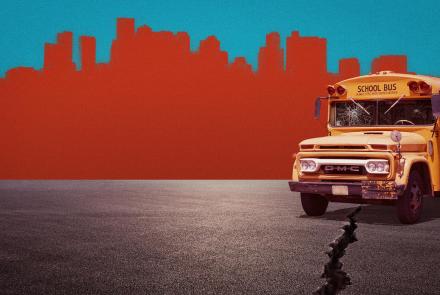
American Experience: The Busing Battleground
Wednesday, February 18 at 7pm
Court-mandated social integration unleashes racial unrest throughout Boston in the 1970s as Black and white students are bused together.
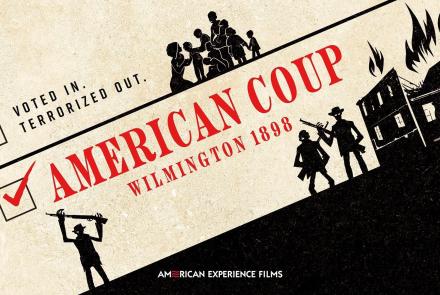
American Experience: American Coup: Wilmington 1898
Thursday, February 19 at 3pm
Tells the little-known story of a deadly race massacre and carefully orchestrated insurrection in North Carolina’s largest city in 1898 – the only coup d’état in the history of the United States.
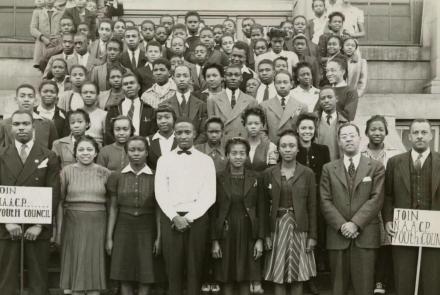
Making Black America: Through the Grapevine
Friday, February 20 at 7pm
Part 3. The Growing Resistance. Host Henry Louis Gates, Jr. examines the social networks African Americans relied on during America’s Great Depression that would ultimately transform race relations and dismantle the oppressive realities of Jim Crow.
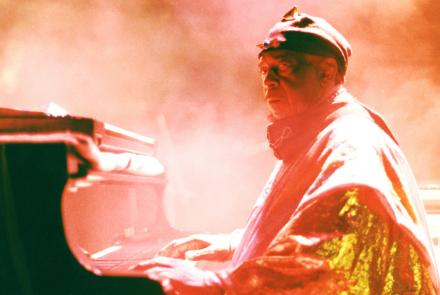
American Masters: Sun Ra: Do the Impossible
Saturday, February 21 at 8pm
In her brilliant new biography, Christine Turner takes us on a journey through the life of Sun Ra, a jazz composer, bandleader, piano and synthesizer player, and poet known for his experimental music, "cosmic" philosophy, and theatrical performances. With his band, the Arkestra, he extended the boundaries of free-form jazz, put his own mark on the standards, and pursued forays into electronic music like no one else.
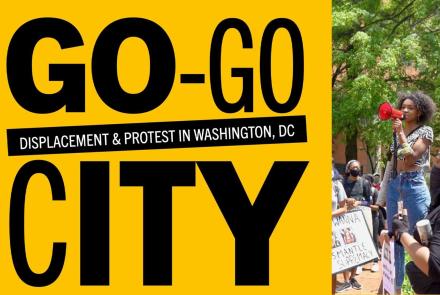
Go-Go City: Displacement and Protest in Washington, DC
Sunday, February 22 at 6pm
Go-Go City follows protesters for racial justice as they took to the streets in the summer of 2020, pushing back against gentrification and rallying around the city's unique Go-Go music scene.
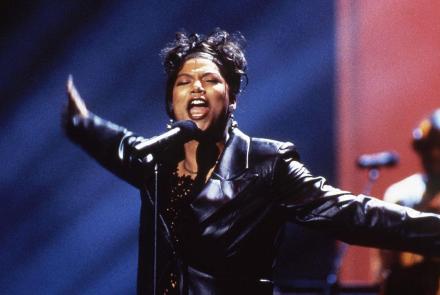
Fight the Power: How Hip Hop Changed the World
Sunday, February 22 at 10pm
Part 3. Culture Wars. Follow the unstoppable rise in popularity of Hip Hop – a force attacked by all sides of the political establishment during the 1990s Clinton years. Part 4. Still Fighting. Chuck D examines the evolution of Hip Hop as its artists turn into multimillionaires and successful entrepreneurs.
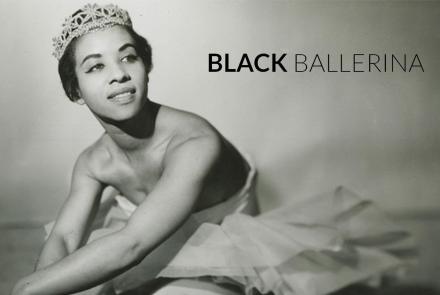
Black Ballerina
Monday, February 23 at 3pm
Sixty years ago, while pursuing their dreams of careers in classical dance, three ballerinas confronted racism, exclusion, and unequal opportunity in segregated mid-century America. In 2015, three young Black women pursued careers as ballerinas, facing many of the same obstacles as their predecessors. Explore larger issues of exclusion, equal opportunity, and change in the ethereal world of ballet.
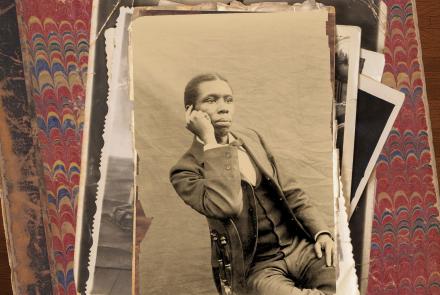
Paul Laurence Dunbar: Beyond the Mask
Wednesday, February 25 at 3pm
A documentary about the life and legacy of the first African American poet to earn national fame. Born to former slaves in Dayton, Ohio, Dunbar also wrote short stories, novels and hard hitting essays critical of Jim Crow laws and lynching. Dunbar's story is also the story of the African American experience at the turn of the century.
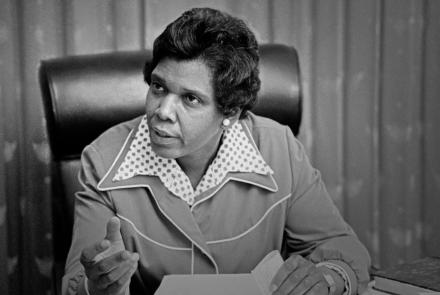
Independent Lens: The Inquisitor
Wednesday, February 25 at 7:30pm
Explore the life and legacy of Barbara Jordan in The Inquisitor. Jordan was a groundbreaking Texas congresswoman whose sharp intellect and moral clarity transformed U.S. politics. From Nixon’s impeachment to civil rights battles, her voice demanded accountability, while she privately faced struggles few ever knew of.
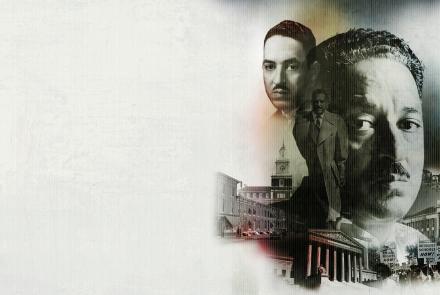
Becoming Thurgood: America’s Social Architect
Thursday, February 26 at 7pm
Explore the life and legacy of the nation’s first African American Supreme Court justice. This film follows Justice Marshall, known as “Mr. Civil Rights,” from his legal career with the NAACP to his 1967 appointment to the nation’s highest court.
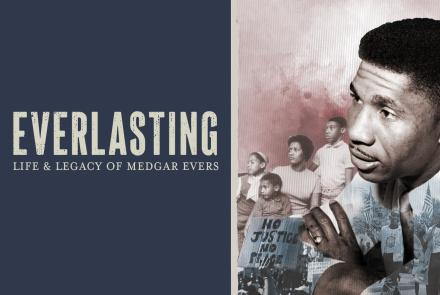
Everlasting: Life and Legacy of Medgar Evers
Thursday, February 26 at 8pm
The film honors the life, work, and impact of one of Mississippi’s most courageous voices. This powerful two-hour documentary features interviews with Evers’ family, colleagues, and historians, offering a moving, personal look at his legacy in the fight for civil rights.
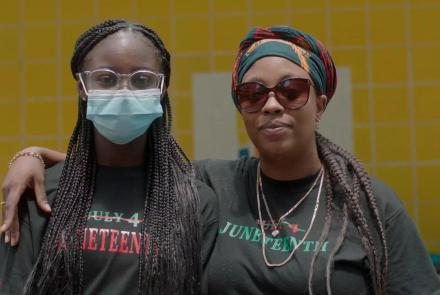
Making Black America: Through the Grapevine
Friday, February 27 at 7pm
Part 4. Life Beyond the Veil. In the conclusion to the series, host Henry Louis Gates, Jr. explores how Black cultural and political movements – from Black Power to Black Twitter – embraced a radical consciousness that championed a new generation.
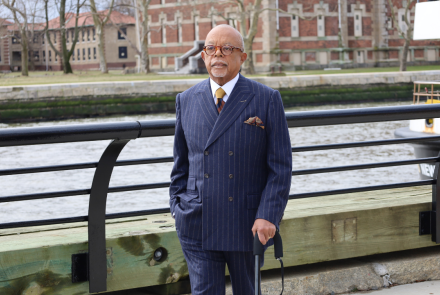
Great Migrations: A People on the Move
Friday, February 27 at 8pm
Part 4 of 4. Coming to America. This episode tells the story of African and Caribbean immigrants in the United States, examining their profound impact on American culture and what it means to be Black in America.

Black Fire
Saturday, February 28 at 7pm
This documentary uncovers Washington, D.C.’s music and cultural heritage by highlighting the music, message, and art of the people behind Black Fire Records – a Black-owned independent jazz record label started in the nation’s capital in the 1970s.
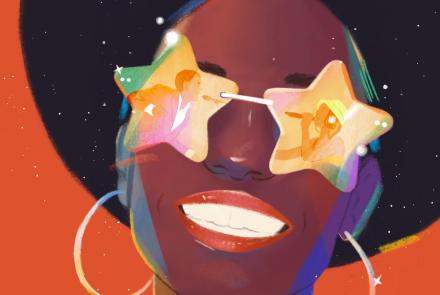
Independent Lens: We Want the Funk!
Saturday, February 28 at 8pm
A syncopated voyage through the history of funk music – from African, soul, and early jazz roots through James Brown, Parliament Funkadelic, Labelle, and Fela Kuti – showing the genre’s impact on new wave and Hip Hop.